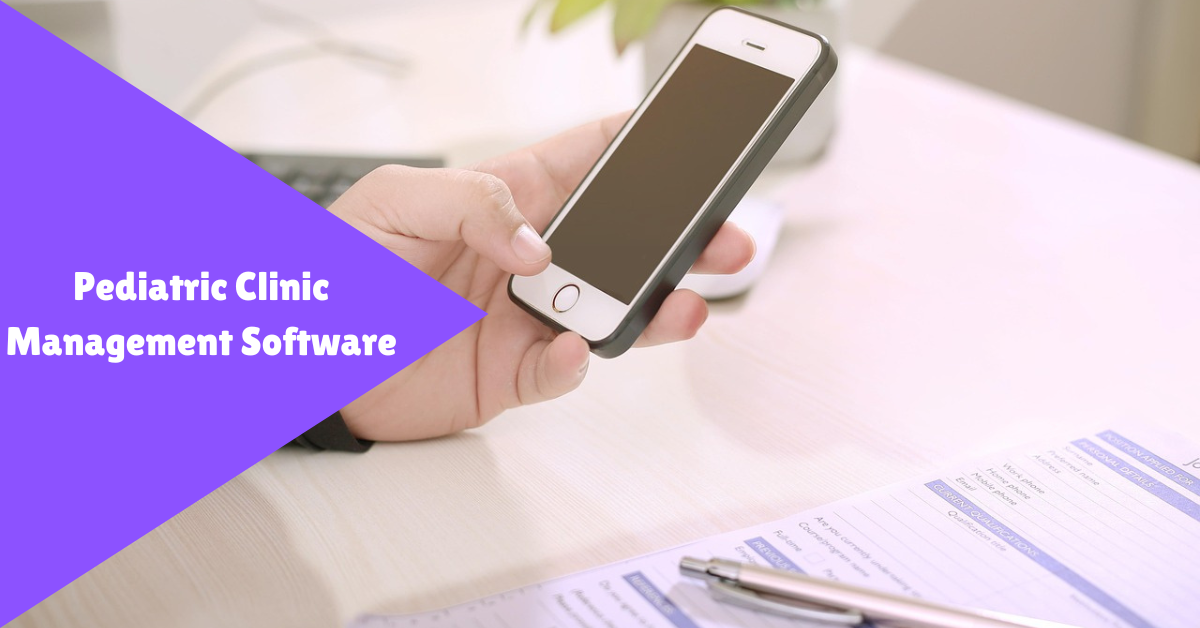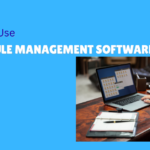Managing a pediatric clinic involves more than just providing quality care—it requires streamlined administration, efficient scheduling, secure medical record-keeping, and effective communication with parents.
As pediatric practices face increasing operational demands, pediatric clinic management software has emerged as a critical solution to simplify processes, improve patient care, and boost clinic efficiency.
This article explores the key features, benefits, and factors to consider when choosing the right pediatric clinic management software for your practice.
Ready to take the first step?
We’ll assist you through every step.

What Is Pediatric Clinic Management Software?
Pediatric clinic management software is a digital tool specifically designed to streamline the administrative and clinical operations of pediatric practices. Unlike generic health management systems, pediatric-focused software includes child-specific features such as growth tracking, vaccination scheduling, parental access, and developmental milestone monitoring.
It serves as a one-stop solution for appointment scheduling, billing, electronic health record (EHR) management, inventory control, and secure communication—all tailored for pediatric care.
Why Pediatric Clinics Need Specialized Software?
Pediatrics differs significantly from adult medicine. Children have unique medical needs, and pediatricians often deal with concerned parents, age-based growth patterns, and complex immunization schedules. Generic software often lacks the nuanced capabilities required for pediatric care.
Pediatric clinic management software addresses these specific needs with:
- Child-friendly EMR templates
- Age-specific vaccination charts
- Parent communication tools
- Growth tracking modules
- Milestone and behavior assessments
Key Features of Pediatric Clinic Management Software
Here are the essential features every pediatric clinic should look for in a clinic management system:
1. Electronic Health Records (EHR) for Children
Child-specific EHRs include customizable templates for different age groups, vaccination histories, allergy tracking, and growth parameters. These records can be easily accessed and updated by pediatricians and authorized staff.
2. Vaccination Tracking and Reminders
Vaccination is a vital part of pediatric care. The software should include a vaccination scheduler with automated reminders for parents, age-based charting, and alerts for missed or upcoming doses.
3. Appointment Scheduling and Calendar Management
The software allows for easy booking, rescheduling, and cancellation of appointments, reducing no-shows with SMS/email reminders. Some platforms offer integrated telehealth options for virtual consultations.
4. Parental Access and Communication
Modern systems include parent portals or mobile apps that allow caregivers to access records, download prescriptions, book appointments, and communicate securely with the pediatrician.
5. Billing and Invoicing
Integrated billing modules support automated invoicing, insurance processing, and payment tracking. This simplifies financial operations and ensures timely collections.
6. Growth and Development Monitoring
The software should support graphical tools for monitoring a child’s height, weight, BMI, and head circumference in line with WHO/CDC growth charts.
7. Data Security and Compliance
Look for software compliant with HIPAA or other local health regulations to ensure patient data is encrypted and protected from unauthorized access.
Benefits of Using Pediatric Clinic Management Software
1. Improved Efficiency and Time Management
Automating routine tasks—like patient intake, follow-up reminders, and documentation—saves time and reduces manual errors, allowing pediatricians to focus more on care.
2. Better Patient Experience
Parents appreciate easy access to health information, online appointment booking, and faster service. This results in increased satisfaction and retention.
3. Accurate Medical Record-Keeping
Digitized and centralized records reduce the risk of lost or incomplete files. Real-time updates ensure everyone on the care team has the latest information.
4. Enhanced Communication
Secure messaging tools help clinics maintain continuous and clear communication with parents about their child’s health, immunizations, or treatment plans.
5. Scalability for Growing Practices
Whether you’re a solo pediatrician or a multi-location clinic, the right software can scale with your needs, adding modules for labs, pharmacy, or even analytics.
How to Choose the Right Pediatric Clinic Software?
When selecting pediatric clinic management software, consider the following:
- Pediatric-Focused Design: Ensure the software is built specifically for pediatricians.
- Ease of Use: The interface should be intuitive for both staff and parents.
- Cloud-Based Access: Enables flexibility and real-time access to data from anywhere.
- Customization Options: Templates and features should be adaptable to your workflow.
- Integration Capabilities: Choose software that integrates with labs, pharmacies, and payment gateways.
- Customer Support and Training: Look for providers that offer onboarding, training, and responsive support.
Top Use Cases of Pediatric Clinic Management Software
- Solo Pediatric Clinics: Manage all tasks from scheduling to EMR in one dashboard.
- Multi-Specialty Children’s Hospitals: Coordinate among pediatricians, therapists, and specialists with shared access.
- Vaccination Centers: Track doses, send alerts, and generate immunization reports for schools or travel.
- Telehealth Practices: Conduct video consultations and share prescriptions digitally.
Future Trends in Pediatric Clinic Management Software
With advancements in health tech, pediatric software is evolving rapidly:
- AI-based Diagnostic Assistance: Helping identify symptoms early based on patterns.
- Wearable Integration: Syncing with health trackers for real-time data.
- Voice-to-Text Notes: Reducing time spent on documentation.
- Predictive Analytics: Identifying at-risk children based on health records.
Investing in modern software today prepares pediatric practices for these future innovations.
Conclusion
Choosing the right pediatric clinic management software can transform the way pediatricians run their clinics, enhancing productivity, improving patient care, and simplifying administrative tasks. From vaccination tracking to growth monitoring and secure parent communication, specialized software ensures your pediatric practice stays efficient, compliant, and family-focused.
Whether you’re starting a new clinic or looking to upgrade your existing system, adopting a reliable clinic management solution tailored for children is a wise step toward modern pediatric care.
FAQs
1. What is pediatric clinic management software used for?
Pediatric clinic management software is used to streamline daily operations such as appointment scheduling, billing, electronic health records (EHR), vaccination tracking, and parent communication, specifically tailored to the unique needs of pediatric care.
2. How does pediatric clinic software improve patient care?
By automating administrative tasks and offering features like growth tracking, vaccination alerts, and secure messaging, the software allows pediatricians to focus more on care delivery while ensuring better communication with parents and accurate medical documentation.
3. What features should I look for in pediatric practice management software?
Look for key features such as child-specific EHRs, age-based vaccination charts, parent portals, telehealth support, billing integration, growth monitoring tools, and HIPAA-compliant data security.
Do you find this helpful?



